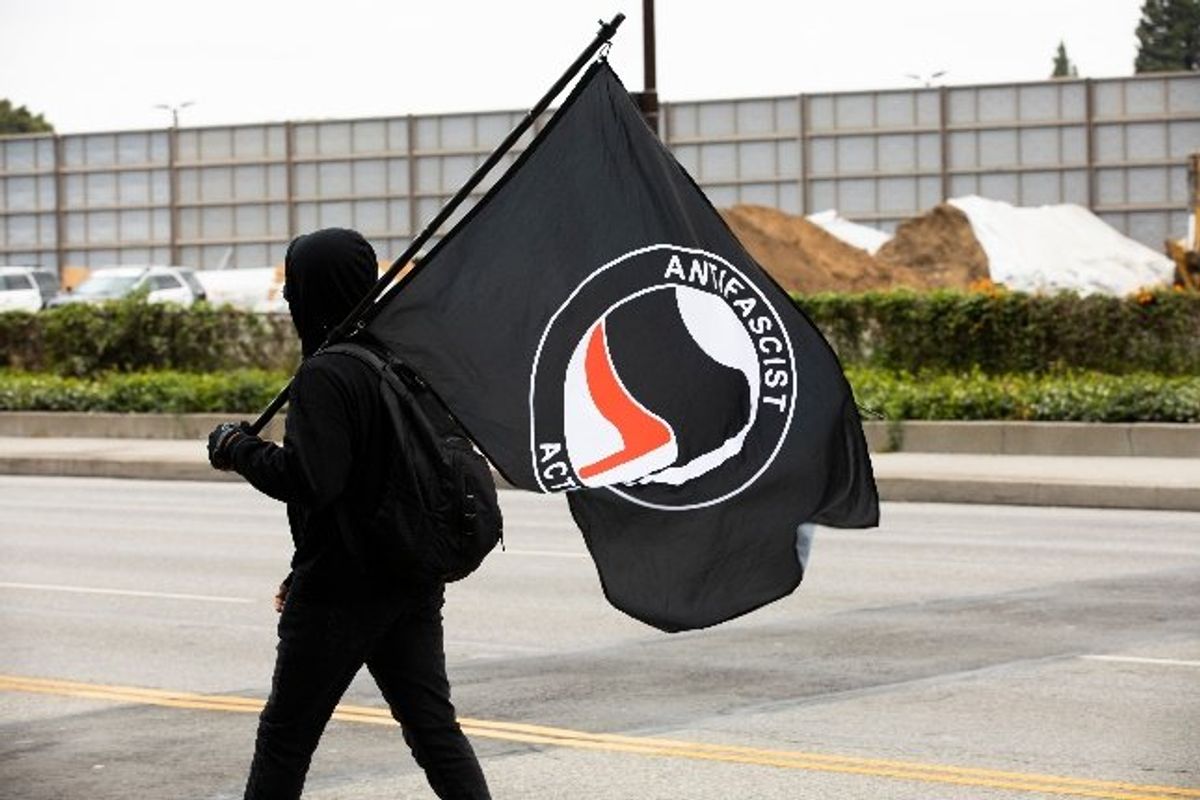
President Donald Trump declared the loose-knit "antifa" through an executive order as a “domestic terrorist organization," and a reporter who covers right-wing extremism warned the move carried disturbing implications.
The president carried through on his threat to designate the group as a terrorist organization after the assassination of MAGA influencer Charlie Kirk, saying "Antifa [is] A SICK, DANGEROUS, RADICAL LEFT DISASTER, AS A MAJOR TERRORIST ORGANIZATION, but journalist Christopher Mathias published a column for MSNBC examining Trump's move and the motivations behind it.
"Nearly every word in the president’s post was a lie," Mathias wrote. "Antifa isn’t an organization. There is no legal statute with which to declare antifa a 'major terrorist organization.' Nor does antifa have a network of rich, shadowy benefactors who can be unmasked. (What little money antifa’s practitioners do have typically comes from their own pockets.)"
Mathias interviewed roughly 60 American anti-fascists for his forthcoming book, “To Catch a Fascist: The Fight to Expose the Radical Right," and he covered how Trump and other MAGA figures have turned antifa activists into a bogeyman to justify violent action by their own right-wing allies.
“I guess the problem with antifa not being an actual organization is that almost nobody is going out and pumping out PR for us,” an American anti-fascist activist told Mathias.
Kirk's alleged killer, 22-year-old Tyler Robinson, wrote apparent anti-fascist slogans on some of his bullet shell casings, according to prosecutors, which Mathias noted could also be references to online gaming memes, but Trump and other conservatives have rushed to label the suspect as antifa.
"I got to know what antifa actually is over the past decade as a reporter covering the far right," Mathias wrote. "Although there are certainly groups and individual activists who identify as antifa, the word also refers to a set of principles and strategies for dismantling the far right: a militant style of anti-fascism that believes that fascist groups need to be sometimes physically confronted in the streets, that fascists should be allowed 'no platform' to organize and that law enforcement can’t be depended upon in the fight against fascism."
Antifa activists are broadly anti-capitalist, and adherents usually describe themselves as anarchists, socialists, or communists, and most shield their identities to avoid reprisals from right-wing extremists.
"While these antifa activists ascribe to a certain militancy, the violence they commit is rare and nonfatal, most often manifesting in the occasional act of Nazi-punching at street demonstrations," Mathias wrote. "The vast, vast majority of the work they do is nonviolent, and it often involves gathering intelligence about the far right, even sometimes — as my book details — engaging in espionage."
A 2020 study from the Center for Strategic and International Studies linked the far right to hundreds of murders over the previous quarter-century, while antifascists were tied to zero homicides, although a self-described anti-fascist killed a right-wing militant in Portland a month after the report's release.
"The past few anti-antifa panics have shown that MAGA has an expansive definition of who constitutes antifa, with everyone even a little left of center liable to be labeled that way," Mathias wrote. "Equating antifa with a 'major terrorist organization,' as Trump has, then becomes an excuse for the right to target whomever it pleases, with both state persecution and vigilante violence."
At the same time, Trump’s Justice Department took down a study from its website showing that far-right extremists commit “far more” fatal violence than the far left, and the FBI, led by Kash Patel, has diverted agents away from monitoring violent extremists toward supporting Trump's mass deportation campaign.
"The Trump administration’s problem isn’t so much the scourge of political violence but who gets to commit it," Mathias wrote.




